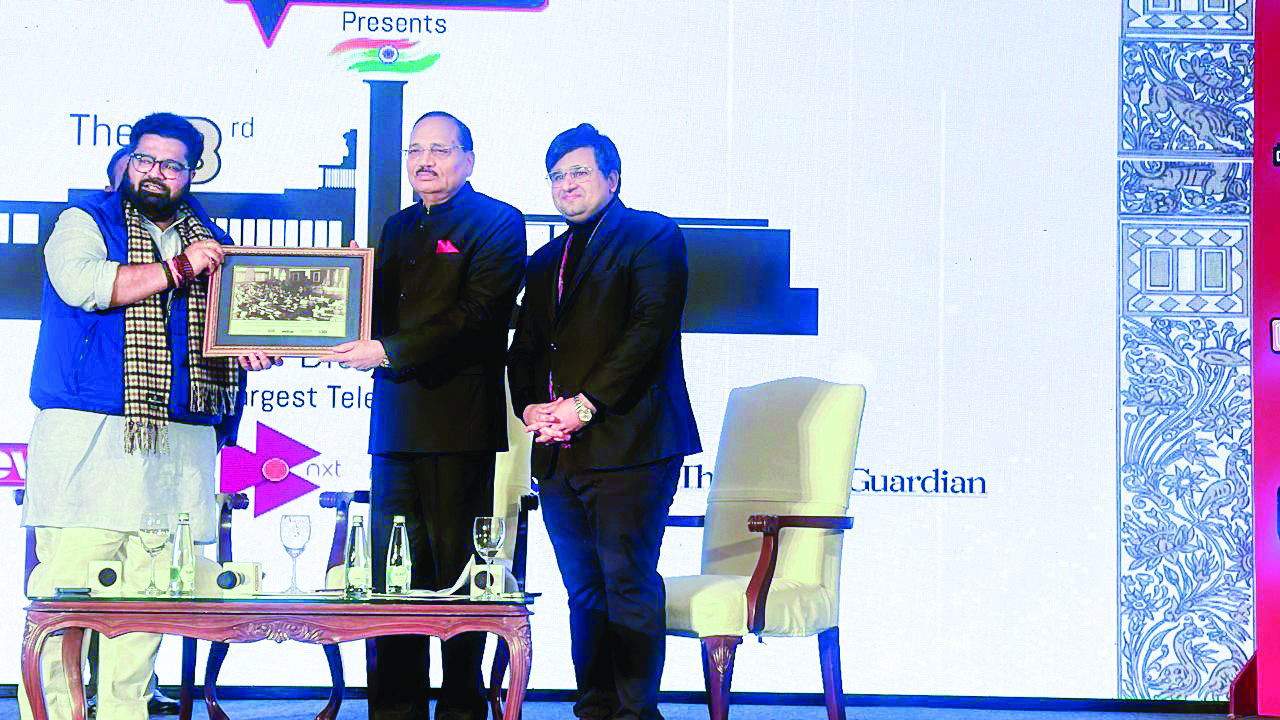New Delhi: At the 3rd Law and Constitution Dialogue presented by Legally Speaking of the ITV Network on Friday in New Delhi, Supreme Court Justice Surya Kant emphasized on the India’s ranking in the World Bank’s ease of doing business report which has improved significantly from 142nd position in 2014 to 63rd in 2019. While delivering the keynote address to the conclave, Justice Surya Kant attributed it to the 2018 amendment to the Specific Relief Act, which is helping India to grow as an economic powerhouse.
The conclave was also addressed by Union Minister for Law and Justice, Arjun Ram Meghwal, Rajya Sabha member Kartikeya Sharma, former judges, ace lawyers and more than 20 Parliamentarians.
Justice Kant noted that India’s legal reforms, including the 2018 Amendment, play a crucial role in this economic transformation. Focusing on several critical changes brought by the 2018 Amendment to the Specific Relief Act, Justice Kant highlighted that “Earlier plaintiffs had to explicitly state their willingness and readiness to perform the contract. But under the 2018 Amendment, while plaintiffs still bear the burden of proof, the requirement for specific averments in pleadings was removed, streamlining the legal process.”
Kant stated that the 2018 Amendment is a crucial part of a wider plan to fortify India’s legal and economic framework, thereby fostering greater global trade, investment, and overall economic growth. He further highlighted that these amendments not only mirror India’s ambitions to become a leading global economic force but also act as a driving factor for enhancing predictability in business dealings.
On the Indian economy, he added, “The reforms of 1991 laid the foundation for India’s rise as a major destination for foreign direct investment (FDI), with sectors such as software, pharmaceuticals, and telecommunications attracting significant investment.”
Defending the recent Cabinet approval on the proposal of “One Nation, One Election”, Law Minister Arjun Ram Meghwal said, Opposition criticism that the government should instead focus on “One Nation, One Health System” or “One Nation, One Education System” should be dismissed as these objections are unrelated. He emphasised on the historical precedent for simultaneous elections between 1952 and 1967.
“The cycle was broken due to mid-term polls and Article 356 misused to dismiss state governments,” he stated. The Minister argued that the frequent imposition of Model Code of Conduct (MCC) disrupts governance and development. “Prime Minister Narendra Modi called an all-party meeting in 2019 on this subject, attended by leaders from all major parties except Congress,” he said. He pointed to countries like Indonesia and the United States. as examples of streamlined electoral processes, urging opposition parties to support the reform.
Rajya Sabha Member Kartikeya Sharma, while discussing the challenges of regulating AI said its evolution is difficult to predict. As a member of Parliament’s IT Committee, Sharma stressed the need for a comprehensive framework to address these issues, acknowledging that the European Union has made progress, but it’s not yet systematic or coherent. He emphasized on the importance of ongoing discussions and debates before regulations can be effectively put in place, as unregulated AI could lead to serious challenges.
Sharma also proposed creating a “Committee of Future Affairs” in India to better address emerging global challenges like AI. He highlighted that India faces the same issues as the rest of the world and needs to stay ahead of the curve by understanding how AI will impact the country, particularly in adversarial contexts. Quantifying these impacts would help solve many of the challenges, if not all.

